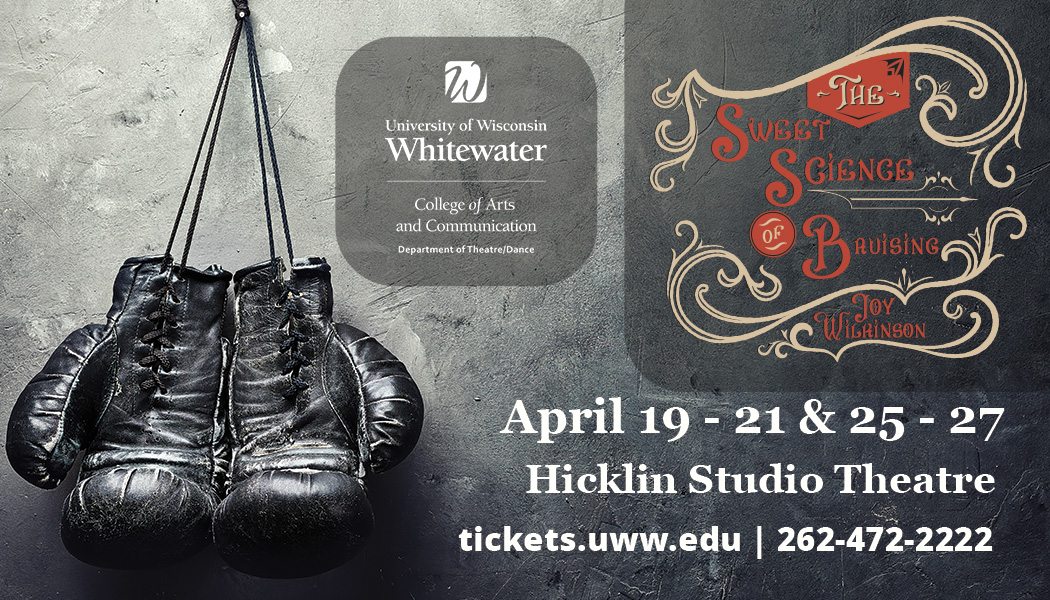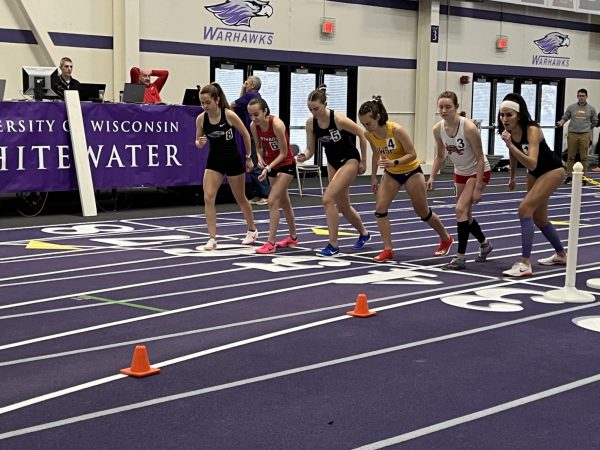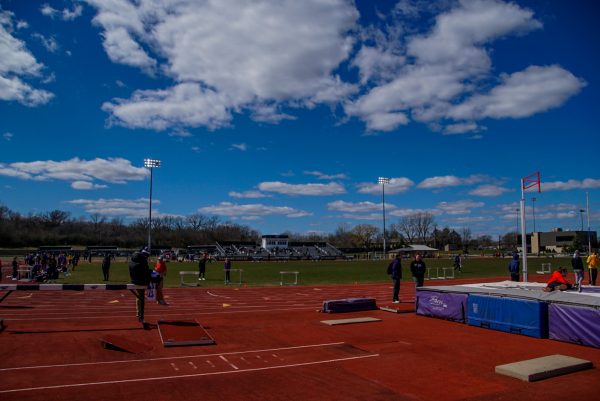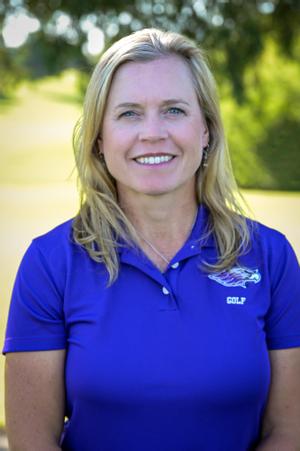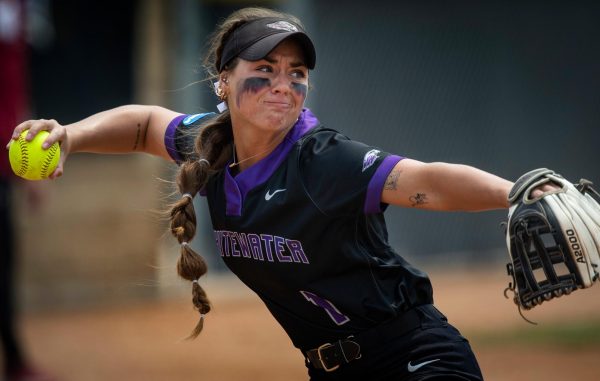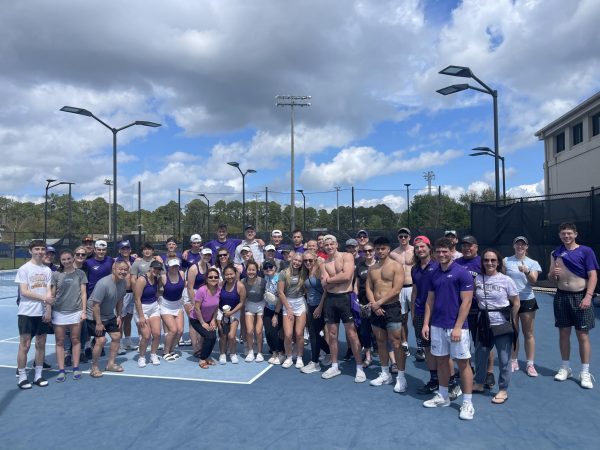Institute bridges gap over water
Students, experts and professors gathered in the atrium of Hyland Hall before the seminar began for a breakfast. During this time, students also had their water research projects available for professionals to view and comment.
October 3, 2017
The Water Business Institute hosted the first annual Water Research Conference (WRC) where experts from Wisconsin presented ideas and developments for changing the future of water business and sciences.
Professors and students gathered from 7:30 a.m. to 3:15 p.m. on Sept. 29 in Hyland Hall for the first event of its kind in the state.
The University of Wisconsin-Whitewater is a state leader in the area of water business. The school works to help make the connection between the university and water markets in the region. Water business covers a range of specialties.
“Water business could be tourism, agriculture, manufacturing; it’s a job creator for the state,” said Russ Kaishan, Director of The Institute of Water Business.
The goal of the WRC is to bridge the gap between studies of business and studies of sciences in the water field and build a strong basis combining those two efforts. The conference split into three tracks: water business emphasis, water science emphasis and a water business and science intersection track, all of which ran at the same time.
A keynote session took place as well to examine the intersection of scientific and economic water enterprise led by Chief Scientist Peter Weber and President Judith Curry of the Climate Forecast Applications Network.
“Because we have the largest undergraduate business school in the state, we identify water business as our specialty,” Kaishan said.
The Institute of Water Business works closely with the Global Water Center, which was created by the Milwaukee Water Council in 2013. It is an epicenter for water sciences and research and houses water businesses that directly affect southeastern Wisconsin.
Dr. William Dougan, from UW-Whitewater’s Entrepreneurship Major program works closely with the Milwaukee Water Council and helped co-found the conference with Kaishan.
“Water is becoming an increasingly important, increasingly critical resource on the planet. Wisconsin has a very strong tradition in water business because of the proximity of the lakes and the small lakes that are scattered across Wisconsin,” said Dougan.
Dougan represents UW-Whitewater on the B.R.E.W Accelerator (Business-Research-Entrepreneurship-in Wisconsin). B.R.E.W helps new startups, especially in the water technology area. Wisconsin in particular has an overabundance of freshwater compared to other areas of the world.
“So if you think about a world where water knowledge is becoming more important, and a location, by standards of the world, there are gigantic amounts of fresh water, it becomes a significant opportunity economically for the state and region,” Dougan Said.
According to University of Wisconsin Sea Grant Institute, three percent of the world’s water exists as freshwater. Less than one percent is available as surface (lake and stream) freshwater. The Great Lakes contain a fifth of all freshwater on earth. This in turn makes the Great Lakes the largest freshwater system on earth.
“There’s going to be a lot of pollutants in the water, and I don’t think we have enough knowledge as our generation of what a necessity water is,” senior Aaron Gottschalk said. “I think it’s going to bring more awareness and education to [water]. I definitely think it’s a call of action to a lot of students.”











